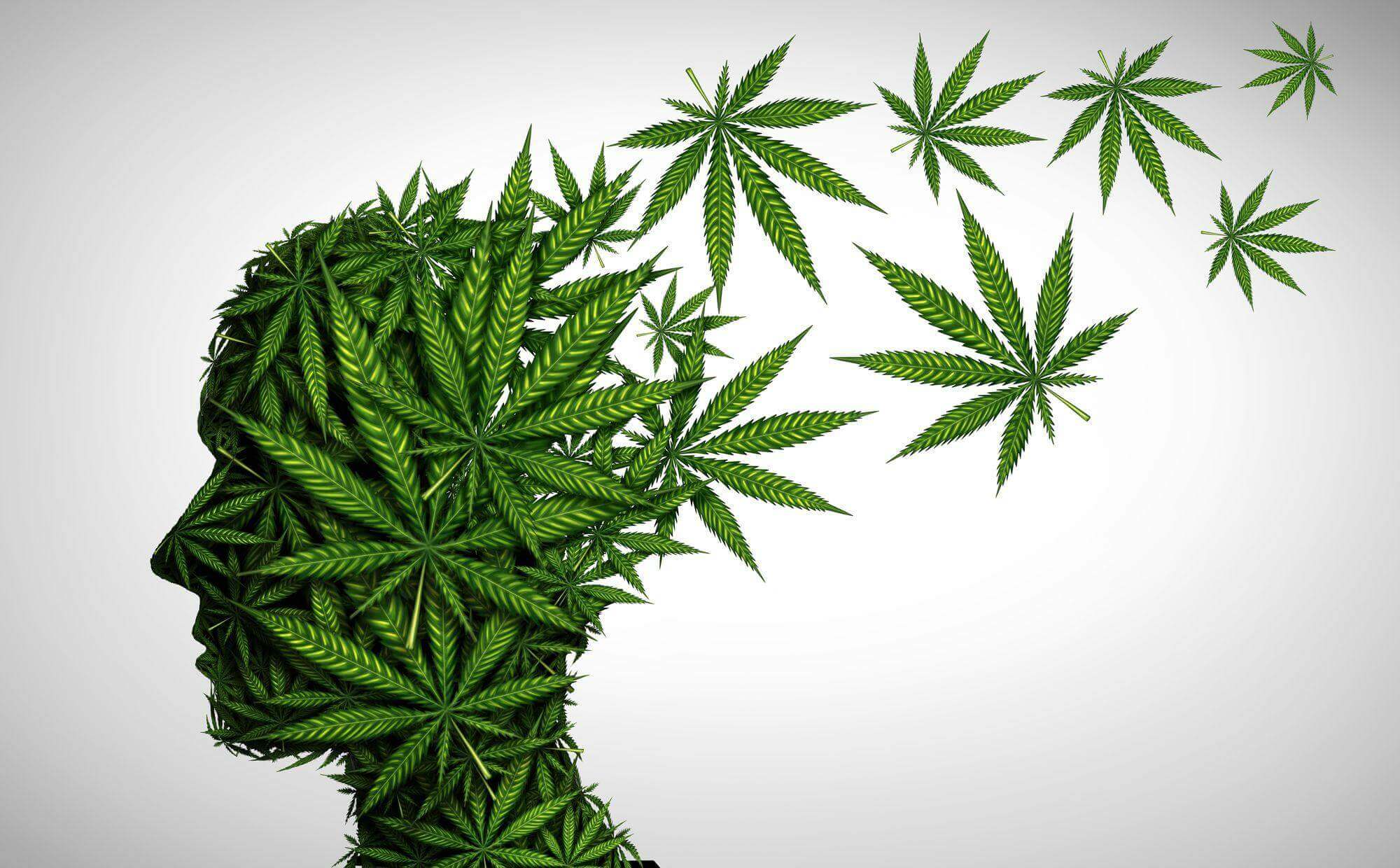
What Are The Short Term Effects of Marijuana?
There are many short-term effects associated with using marijuana. Some of them are negative, and others are positive. We will both review it here. If you learn them, you will find that whey continues to spark debates about this type of drug use.
When marijuana is used, it has many physical and neurological effects that appear immediately and linger for minutes, hours or days as the short-term effects of THC and CBD.
Some of the short-term effects of marijuana abuse include low blood pressure, anxiety, increased heart rate, decreased conception, memory retention, and poor performance of short-term episodic memory, psychomotor coordination, and awareness.
The negative symptoms of marijuana are not as severe as with other drugs, and a pharmacological agent is not required. Symptoms can include nausea, sweating, weight loss, tremors, and insomnia, etc.
In a relatively short time, marijuana enters the bloodstream through the lungs. When THC binds to cannabinoid receptors in the brain, it causes a feeling of euphoria and other immediate effects, such as: B. Changes in depth perception, change in the sense of time, movement disorders, mood changes, cognitive deficiencies, etc.
Short Term Effects of Marijuana
There are many effects associated with using marijuana. Some of them are negative, and others are positive. We will both look at this here. If you learn something about them, you will discover that there is still a debate about this type of drug use.
Side Effects of Marijuana
There are also some side effects of marijuana that don’t really last long. These are:
- Dizziness
- Drowsiness
- Short-term memory loss
- Euphoria
How long will it stay in the body?
Marijuana can remain in your system for a few days, weeks, or a month after the last use. The noticeable effects of marijuana disappears within hours or days.
The exhaustion rate of marijuana in the body is determined by the person’s metabolism and THC life. Although THC’s half-life is 1 to 10 days and nights, it can vary based on intended use, time of use, and many other factors.
Therefore, it is difficult to calculate a certain period of time, and THC is completely eliminated from your body. The person’s metabolism and the number of smokers also affect the time the person has to wait to pass the drug test without testing positive.
THC half-life is basically the time it takes to lose half of THC in the body.
Therefore, if you smoke more marijuana, your person will have to wait longer for THC to drop below detectable levels. But it can generally stay in the body for 3 to 30 days and nights, depending on the metabolic rate and the amount of marijuana smoked.
Short-term Effects on Health
Marijuana, when used, has numerous physical and neurological results. Some of the short-term effects of abuse include increased heart rate, low blood pressure, anxiety, decreased conception, and inadequate execution of short-term episodic memory, psychomotor coordination, memory, and awareness.
The disadvantageous symptoms of marijuana are not as severe as with other drugs. No medication is required. Disadvantage symptoms can be nausea, sweating, weight loss, tremors, and insomnia, etc. People who try pop tops also have short-term health effects.
Short-Term Effects of Marijuana on The Body and Brain
A lot happens when you consume cannabis, and the short-term effects on your brain and body are really noticeable.
Reduce Pain
Pain can be significantly reduced if someone uses marijuana. The review has led to the use of marijuana. The ability to reduce back pain, glaucoma, and even cancer is very important.
It can help patients with such serious health problems achieve a better quality of life. There are still negative effects on them, but the benefits may outweigh them.
Memory Loss
Regular long-term use of cannabis can weaken your memory. It gradually becomes difficult for a person to remember things that happened even a few minutes ago. This leads to a deterioration in critical life skills.
Cough and Respiratory Problems
Smoking marijuana can cause breathing problems and coughs because it affects both the lungs and cigarettes. The carcinogens in cigarettes, when mixed with cannabis, cause more harm because they inhale more deeply and hold the smoke longer.
The chances of getting a lung infection are also higher. Marijuana smokers also burn and itch in their mouths.
Driving Impairement
If you use marijuana, you become careless for your life and create drugs behind the wheel that can cause accidents. Reaction to road signs and noise is slow. Coordination, reflex reaction time, and movements are influenced. Marijuana affects the areas of the brain that control these body movements.
Mental Health
Prolonged marijuana abuse leads to psychosis, withdrawn, excited, and violent behavior. Psychosis is when the patient loses contact with reality. He/she becomes delusional and can even hallucinate. Research shows that marijuana abuse is linked to schizophrenia and bipolar disease.
Marijuana Effects on the Body system.
Respiratory tract
Similar to the effect of tobacco, smoking marijuana releases chemicals that irritate the lungs, including the bronchial passage. For the regular drug smoker, wheezing and coughing are quite common, ultimately leading to serious illnesses like asthma and cystic fibrosis. The main element of marijuana smoke is carcinogens.
Effects on the Heart
The main ingredient in marijuana, THC, is responsible for increasing the heart rate, which can be high for up to three hours. It can also increase the risk of cardiac arrest in people with heart problems. The most obvious symptoms of the drug are bloodshot eyes. Due to the medicine, the blood vessels in the eyes widen or expand, and there is also a stoppage in the growth of the blood vessels, which can cause tremors of cancer.
Nervous system:
Marijuana relaxes the brain because THC allows the brain to secrete dopamine. It is the same source from which a person feels drugged. The feeling causes hallucinations and delusions. After the body’s reaction to being drugged, a person feels very depressed or depressed. If you stop using marijuana after an addiction, people are very irritable, sleepless, or even lose their appetite. Pregnant women who use marijuana expose their babies to problems with concentration, memory, and even problem-solving skills.
Medical Effects of Marijuana
Research showed that an active ingredient in marijuana slows down plaque formation and prevents the disease from progressing. It has also been shown to prevent the formation of proteins responsible for the memory disorder associated with the disease.
It is surprising to find that smoking cannabis alone (without tobacco smoking) does not increase the risk of lung cancer but can have a protective effect, and this result is well documented. However, there is evidence that smoking cannabis and tobacco has a synergistic effect on the increased risk of lung cancer.
A California study showed that cannabinol, a chemical contained in marijuana, can prevent the spread of breast cancer throughout the body.
HIV / AIDS patients benefit greatly from medical marijuana. One study found that smoking marijuana significantly reduced the incidence and severity of neuropathic pain and increased the effects of appetite in these patients.
Proven benefits of marijuana
-
Control epileptic seizures: it is beneficial to prevent epileptic seizures. It contains tetrahydrocannabinol (also called THC), which controls seizures by binding to brain cells. These brain cells are responsible for controlling excitability and regulating relaxation.
-
Prevents the spread of cancer: A 2007 study at the California Medical Center in San Francisco showed that marijuana could help prevent the spread of cancer. Cannabidiol turns off a gene called Id-1, preventing the spread of cancer. You can visit the Cannabis Club in San José to learn more about cancer prevention by taking marijuana.
-
Reduces anxiety: Researchers from the Harvard Medical School in 2010 suggested that smoking marijuana to some extent, can actually reduce anxiety, which helps improve the mood of smoking and acts as a sedative at low doses. But taking too much can increase anxiety and make you paranoid.
-
Appetite stimulant: THC in marijuana acts as a strong appetite stimulant for healthy and sick people. It also stimulates weight gain in patients with anorexia.
-
Asthma: Marijuana may not treat asthma properly, but it improves breathing in asthmatics. Smoking marijuana can calm asthma attacks.
-
Sleep aid: marijuana eliminates pain, reduces inflammation, and promotes sleep. It helps people with insomnia and other healthy people to sleep faster.
-
Improve metabolism: A study showed that marijuana smokers are slimmer than the average person and have good metabolism. Also, your body responds well to sugar.
Summary
However, it is not always easy to find out how marijuana affects a person at any given time. This is because the effects of marijuana vary from individual to individual, depending on the amount that the individual has used. In addition to this herb, which is used as a recreational drug, this plant is also used as a medicine under certain conditions.

Alex Paquette
Alex is answering Australia's questions about cannabis jobs, businesses and the medicinal marijuana industry. Research into cannabis in Australia and bringing accurate and up-to-date articles to you.
Disclaimer: Cannabis Place are not doctors and we recommend consulting health professionals for accurate information. This site may contain information regarding drugs. This content is designed for an 18+ audience. Click here for our full disclaimer

